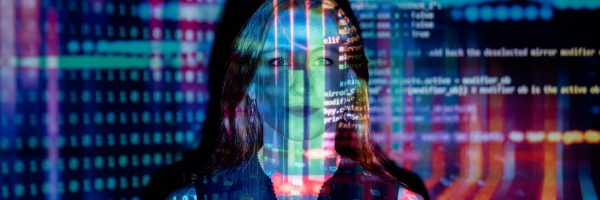The Future of Cybersecurity: AI Does Play a Role
Rhea-AI Summary
Karissa A. Breen, Head of Cybersecurity Journalism at KBI.Media, discusses the important role of AI in cybersecurity. AI's ability to analyze vast amounts of data quickly enables it to uncover new patterns and identify potential security threats. While AI enhances threat detection and improves data security, it's also being used by threat actors for more sophisticated attacks. The cybersecurity industry faces a widening skills gap as AI adoption accelerates, creating opportunities for professionals with both technical and soft skills.
Breen emphasizes the need for diversity in cybersecurity, particularly encouraging women to enter the field. She highlights how women's unique perspectives and skills in empathy, collaboration, and problem-solving can be valuable in addressing cybersecurity challenges and shaping the future of AI in security.
Positive
- AI enhances threat detection and improves data security in cybersecurity
- AI can help organizations anticipate future vulnerabilities and resolve issues proactively
- Opportunities for professionals with both technical and soft skills in cybersecurity due to AI adoption
Negative
- AI is being used by threat actors for more sophisticated attacks
- Widening skills gap in the cybersecurity industry due to rapid AI adoption
News Market Reaction 1 Alert
On the day this news was published, CSCO gained 2.47%, reflecting a moderate positive market reaction.
Data tracked by StockTitan Argus on the day of publication.
By Emma Reid
This blog was authored by Karissa A. Breen (more commonly known as KB), Head of Cybersecurity Journalism at KBI.Media.
NORTHAMPTON, MA / ACCESSWIRE / September 16, 2024 / Karissa will present on Cisco Networking Academy's Women Rock-IT webinar series in October, during cybersecurity awareness month. KB has been crowned a LinkedIn ‘Top Voice in Technology'. She is a serial entrepreneur and co-founder of the TMFE Group, a holding company and consortium of several businesses all relating to cybersecurity including, an industry-leading media platform, a marketing agency, a content production studio, and an executive headhunting firm, MercSec. Read KB's blog below.
AI's function in cybersecurity
AI's function in cybersecurity is not just beneficial, but essential. Machine Learning (ML) algorithms can analyze and interpolate (insert) large amounts of data - much faster than any human - to uncover new patterns that would otherwise go unseen. Health, primary industries, manufacturing, and of course, security are all benefiting from even this embryonic state of AI.
AI is creating new paradigms in every industry
From aggregating and parsing medical scans to identify cancers before they fully form, identifying fungal leafinfections using AI powered drones, improving the environmental impact ofmanufacturing, to cybersecurity. In cybersecurity, AI can map patterns and identify anomalies that indicatepotential security gaps or even systems that have already been compromised. This toolset allows organizations to detect and mitigate threats before they occur or cause significant damage, and it's only just the start of this new war.
AI-driven tools are now being used by threat actors
From individuals to state-sponsored advanced package tools (APTs), AI is being used in (or to enhance) attacks on a wider range and number of targets. AI attacks may lead to more sophisticated attacks, with the ease with which it can pivot its attack model. Conversely, blue teams defending organizations can adapt to new types of attacks by learning from previous incidents, continuously improving their defensive capabilities by leveraging approaches like Autonomous Cyber Defence (ACyD). This adaptability can be critical within an environment where cybercriminals are constantly evolving their tactics, often by weaponizing AI against organizations.
With the effective use of AI, organizations can not only improve their current security measures, but also anticipate future vulnerabilities and resolve issues proactively.
The role and future of AI in cybersecurity
The role and future of AI in cybersecurity is contentious to say the least. However, it seems the good may outweigh the bad. Over the course of nearly 300 interviews, the advantages of AI have been covered again and again:
The Emerging Role of AI in Cybersecurity - In the majority of my podcast interviews, my guests demonstrate how AI enhances threat detection, improves data security, and automates security operations center (SOC) operations.
The Importance of Generative AI - The importance of generative AI in creating advanced defenses and simulating potential attack paths.
AI Augmentation - Although AI is significant for the future of cybersecurity, cybersecurity practitioners reiterate the importance of complementing rather than replacing human analysts.
Bridging the Skills Gap - Empowering a New Generation
Over the years, there has been constant talk around the ‘skills gap'. With advances in AI, this has led to an even greater skills gap deficit in the cybersecurity industry. As the adoption of AI accelerates, the cybersecurity skills gap widens - as many people within my network and during my media interviews have discussed at length. This gap is not just about technical expertise; it's about understanding the human-AI interplay. Security professionals need to enhance their technical skills, particularly in technical security, but the need to develop ‘soft skills' - I like to call these skills hard skills. Managing people, expectations and clients aren't easy skills and this is where I do believe women have a great opportunity to excel.
A Call to Action for Women in Cybersecurity
Cybersecurity as an industry is dominated by males. When I entered the field not so long ago - about a decade ago - there weren't a lot of women in cybersecurity. So I have taken on encouraging women to take up roles within the cybersecurity field as a part of my media role.
Now, while I don't want to speak into any existing stereotypes about women specifically, having a diverse team brings unique perspectives and diversity of thought that is invaluable in addressing how cyber criminals might think. I've personally seen many women drive their careers to a new level with their empathy, collaboration, and problem-solving skills. Initiatives like mentorship programs, networking opportunities, and targeted educational resources can also play a significant role in attracting female talent in cybersecurity.
Moreover, when it comes to AI as a whole, women may have a decided advantage in understanding and spearheading alternate approaches. Nature and nurture, encompasses everything from brain chemistry and function through to social conditioning. We may find that this presents women with several advantages - or at least relatively novel models - in social cognition and the appreciation for the general theory of mind.
What Cuzzolin et al refer to as ‘hot cognition' - how thinking and its processes are influenced by emotional state - may well help shape ethical and operational boundaries for the development and extension of AI. And given the innate duplicitous nature of cyber, this may have pronounced shaping of the future of security - one significantly sculpted by women.
View original content here.

View additional multimedia and more ESG storytelling from Cisco Systems Inc. on 3blmedia.com.
Contact Info:
Spokesperson: Cisco Systems Inc.
Website: https://www.3blmedia.com/profiles/cisco-systems-inc
Email: info@3blmedia.com
SOURCE: Cisco Systems Inc.
View the original press release on accesswire.com






